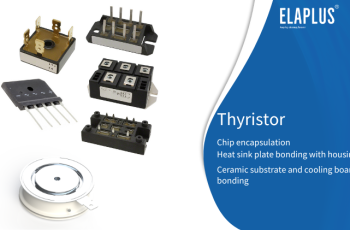What is a thyristor? Thyristor encapsulation method and adhesive solution
What is a thyristor? What does a thyristor do? Thyristor, commonly known as silicon controlled rectifier (SCR), is a very important electronic component, which is widely used in many fields. Thyristor is a semi-controlled power electronic device with two triggering modes: current control and voltage control. Its appearance has greatly promoted the development of power electronic technology. Function of thyristor The function of thyristor is very wide, and it can be used in rectification, inversion, chopping, frequency conversion and other applications: In terms of rectification Thyristors can convert AC into DC, and are often used in battery charging, motor control, etc. In terms of inversion Thyristors can convert DC into AC, and are often used in household appliances, electric vehicles, etc. In terms of chopping and frequency conversion Commonly used to adjust the output voltage and frequency of the power supply Thyristor Advantages and Challenges Advantages: high efficiency, high frequency, high reliability, etc. Disadvantages: prone to thermal collapse, imprecise control, etc. To solve these problems, thyristors can with encapsulation. Thyristor with encapsulation can protect the chip, enhance the electrical and thermal performance, and facilitate installation and transportation. Thyristor encapsulation There are three main types of encapsulation: ▶ Metal seal (bolt-shaped, flat-plate-shaped, round-shell-shaped) ▶ Plastic seal (with heat sink and without heat sink) ▶ Ceramic package thyristor Today we mainly learn about ceramic encapsulation thyristors: Ceramic encapsulation adhesive solution Chip potting ELAPLUS SIPA 1878 adhesive provides stress relief, excellent high temperature electrical insulation and mechanical strength, and can effectively prevent environmental damage to sensitive chips. Thermal Management SIPA 1921 thermally conductive silicone provides strong bonding capabilities and is used for bonding the heat sink to the housing, and the ceramic substrate to the heat sink, ensuring efficient heat dissipation and reducing the risk of thermal collapse Terminal potting It is potted…


